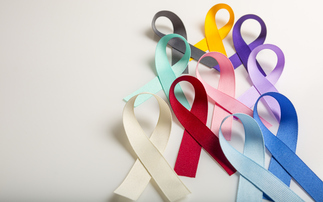The rates of women dying from ovarian cancer in England have fallen by 20%, Cancer Research has reported.
The numbers have dropped from 11.2 women in every 100,000 in 2001 to 8.8 in 2010, according to a report by the National Cancer Intelligence Network.
And it showed the most notable drop in deaths has been among women aged 40 to 69 years old.
Dr Andy Nordin, gynaecological oncologist at East Kent Hospitals University NHS Foundation Trust and study author, said: "The report is very encouraging and shows a fall in the rates of a type of cancer that has always been notoriously hard to treat.
"This is because ovarian cancer is a group of different disease types, which is difficult to diagnose and commonly presents as advanced disease.
"This drop in deaths may reflect improvements in detecting and treating the disease, such as improvements in scanning, surgery and chemotherapy treatments."
She added that in the past decade, ovarian cancer patients in the UK have experienced better management due to organisation of ovarian cancer care in specialist gynaecological cancer centres, planning of care by teams of cancer experts and specialist surgery.
The report also found survival for ovarian cancer has increased since the mid-1980s; women surviving for at least one year has risen from 57% to 73% and the five-year survival has increased from 33 to 44 per cent.
In 2009 almost half of women diagnosed with ovarian cancer were in their 60s or 70s - and 80 per cent of deaths were in women aged 60 or over.
Chris Carrigan, head of the National Cancer Intelligence Network (NCIN), said: "As ovarian cancer can be very hard to diagnose and treat it is important to learn as much as we can about the numbers of women who develop the disease, how many survive and how many die."
The report highlighted that incidence rates for developing the disease have remained fairly stable since the late 1980s.
Dr Nordin said: "We know the risk of developing some types of ovarian cancer may be related to the number of times a women ovulates during her lifetime.
And anytime that she stops ovulating such as during pregnancy and breast feeding, early menopause and taking the contraceptive pill all help to protect against the disease developing.
"The fall in incidence could therefore partially reflect the widespread use of hormonal contraceptives since the ‘60s."
Ovarian cancer is the fifth most common cancer in women in the UK with around 7,000 cases diagnosed each year.











